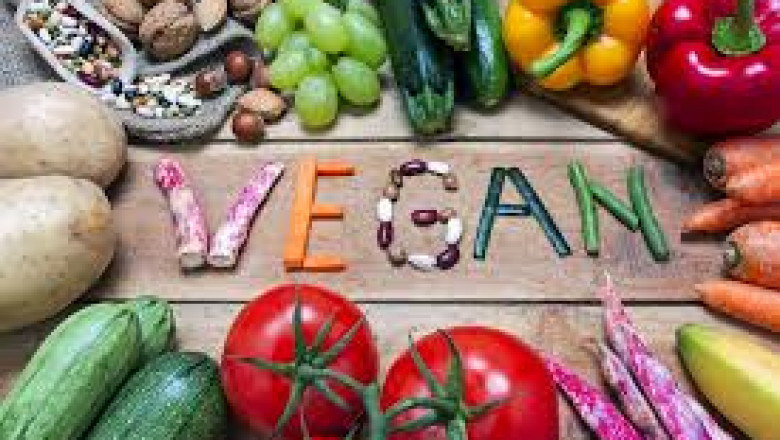views
India is a land of festivals—vibrant, colorful, and steeped in centuries of tradition. From the sweet-smelling modaks of Ganesh Chaturthi to the buttery parathas enjoyed during Lohri, food is more than just sustenance during festivals; it is an emotion, a symbol of community, and often, a form of offering to the divine. But as the conversation around ethical consumption and sustainable living grows louder, a pressing question arises: Is veganism compatible with Indian festivals and traditions?
Understanding Veganism in the Indian Context
Before diving into the intersection of veganism and Indian festivities, it's important to understand what veganism entails. A vegan diet excludes all animal-derived products—meat, dairy, eggs, honey, and even products like ghee and paneer, which are staples in many Indian households.
Interestingly, India is already home to a large vegetarian population. Many traditional Indian meals are plant-based by default. However, the Indian vegetarian diet often heavily relies on dairy. So, transitioning to a vegan approach requires not just dietary adjustments but also a cultural shift.
Festivals and Food: Where Tradition Meets Taste
Nearly every Indian festival involves food, and much of it contains dairy—think milk-based sweets like rasgulla, peda, and kheer. Even offerings made to deities, such as panchamrit, contain milk, curd, and ghee.
At first glance, this may seem like a roadblock for vegans. But is it truly incompatible, or is it just a matter of reinterpretation?
The answer lies in adaptation, not abandonment.
Vegan Versions of Traditional Festive Foods
One of the most beautiful things about Indian cuisine is its flexibility. With a little creativity and the right substitutes, almost any traditional dish can be veganized.
-
Kheer can be made with almond or coconut milk and jaggery.
-
Ladoos can be prepared using plant-based ghee or oils.
-
Paneer dishes can use tofu as a substitute.
-
Even gulab jamuns, usually made with khoya, can be made using almond flour and coconut milk.
With plant-based alternatives becoming more accessible across cities, it's now easier than ever to recreate festive flavors without animal products. The rise of Vegan Restaurants in Delhi, Mumbai, and other metros has made these alternatives more mainstream, allowing more people to experience veganized versions of their favorite dishes.
Rethinking Offerings and Rituals
A more sensitive issue comes up when we look at religious rituals and offerings. Many temples offer prasad made with ghee or milk. Devotees are often encouraged to offer dairy-based products to gods and goddesses, as it has been considered auspicious in Hindu tradition.
However, Hindu philosophy also emphasizes ahimsa, or non-violence—a principle that aligns closely with vegan values. Some spiritual leaders and modern thinkers argue that offering plant-based alternatives is more in line with the spirit of ahimsa, especially considering the cruelty often involved in modern dairy farming.
Some temples have even started adapting to vegan offerings, especially when devotees request it. There is also a growing community of Indians who choose to interpret rituals symbolically rather than literally, offering fruits or vegan sweets instead of dairy-heavy prasad.
Community and Connection: Beyond the Plate
Festivals are about more than food—they are about togetherness, prayer, celebration, and cultural identity. A vegan participating in traditional Indian festivals may make different choices at the dining table, but they are still very much part of the cultural fabric.
In fact, many families are now more open to incorporating vegan dishes during festivals, even if not everyone is vegan. This opens up beautiful opportunities for education, compassion, and innovation. Potlucks, for instance, can become platforms where people taste and appreciate vegan takes on traditional recipes.
The Role of Conscious Celebration
It’s also worth considering the evolving nature of festivals themselves. In a world grappling with climate change and animal rights issues, many Indians are rethinking how they celebrate. Eco-friendly Ganeshas, plastic-free Holis, and cruelty-free Rakhi trends show that Indian traditions are not static—they are dynamic and responsive to the times.
Adopting a vegan lifestyle during festivals can be seen as part of this larger movement—a conscious celebration that honors both tradition and ethical responsibility.
Challenges Still Remain
Of course, there are challenges. Not every community is open to change. Older generations may find it difficult to accept the idea of a "ghee-free" Diwali or a "paneer-less" Navratri meal. Social pressures, lack of access to vegan alternatives in rural areas, and emotional ties to food traditions can all make the transition harder.
But change doesn't have to be immediate or all-or-nothing. Even partial shifts, such as making one or two vegan dishes alongside traditional ones, can pave the way for greater acceptance.
Final Thoughts
So, is veganism compatible with Indian festivals and traditions? The answer is a resounding yes—but with a modern twist. It requires adaptation, creativity, and an open heart. Indian culture, at its core, is about compassion, community, and celebration—all values that align beautifully with the principles of veganism.
As the vegan lifestyle india movement continues to grow, especially among younger generations, we are likely to see more festivals celebrated in a way that respects both tradition and the planet. It’s not about rejecting the old but reimagining it for a more conscious future.














Comments
0 comment